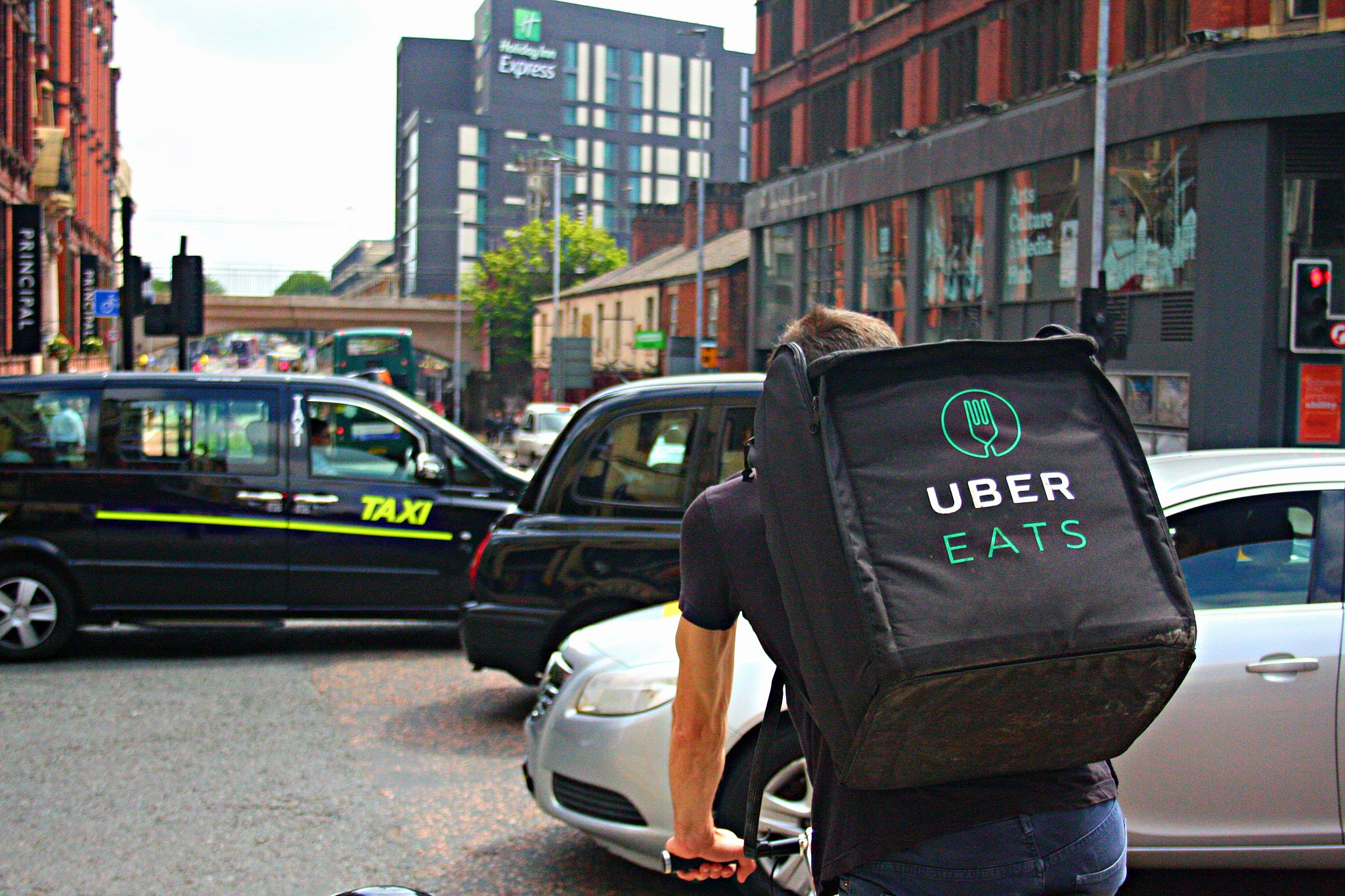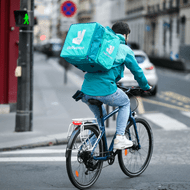Delivery Giants Reassess Rider Substitution Policies Amid Legal Concerns
Posted by Emma on 20th Nov 2023 Reading Time:
Major food delivery companies like Uber Eats, Deliveroo, and Just Eat are rethinking their approach to courier substitutions. This policy change comes after government officials raised concerns about illegal working practices during recent discussions with these companies. Traditionally, these platforms have allowed their self-employed riders to use substitute riders when unable to work. However, this practice has come under scrutiny amid fears it might enable underage workers or those without legal UK work permissions to operate undetected.
 Pacopac, CC BY-SA 4.0, via Wikimedia Commons
Pacopac, CC BY-SA 4.0, via Wikimedia Commons
The government's stance is clear. Immigration Minister Robert Jenrick emphasised the need for customer assurance that delivery personnel are thoroughly vetted. He pointed out that unchecked account sharing not only compromises public safety but also fuels illegal migration and worker exploitation. In response, the delivery companies assert they conduct proper employment checks on all account holders.
The actions taken are significant. Immigration Enforcement teams have intensified their focus on the food delivery sector, conducting over 250 enforcement visits and making more than 380 arrests this year alone.
In August, a pivotal agreement was struck with these companies to bolster recruitment processes and heighten awareness of illegal working in the UK.
Representatives from Just Eat, Deliveroo, and Uber Eats have voiced their commitment to working with the government on this issue. They've highlighted their stringent criteria for couriers, including age restrictions, criminal checks, and work authorisation verifications. Deliveroo has even implemented facial recognition technology as part of its efforts to ensure compliance.
 shopblocks, CC BY 2.0, via Wikimedia Commons
shopblocks, CC BY 2.0, via Wikimedia Commons
The message is clear: These companies are taking a strong stance against any breaches of legal obligations, ready to remove couriers from their networks if standards are unmet.
This development marks a critical juncture in the food delivery industry, reflecting a broader commitment to legal compliance and public safety.
Your thoughts on this are valuable. Will these measures effectively address the concerns raised? Share your perspective in the comments below!

